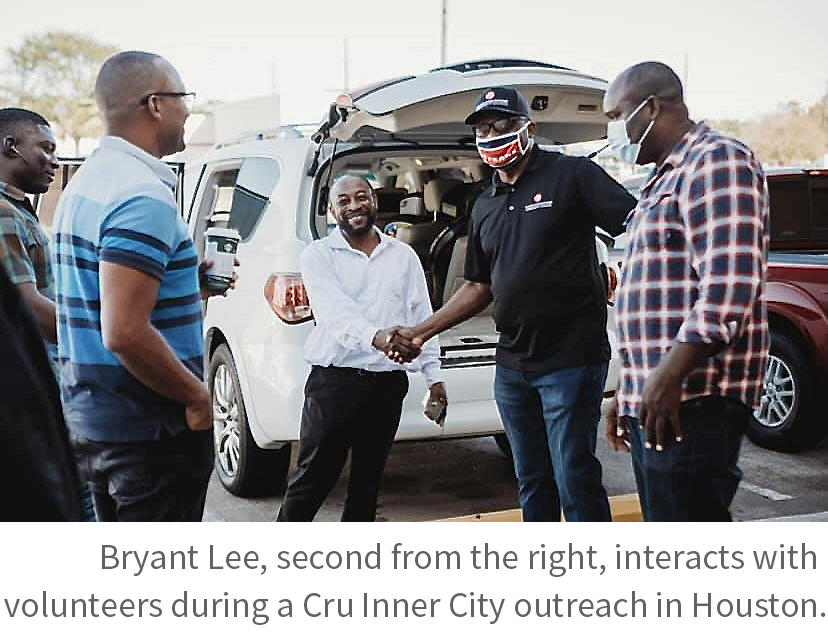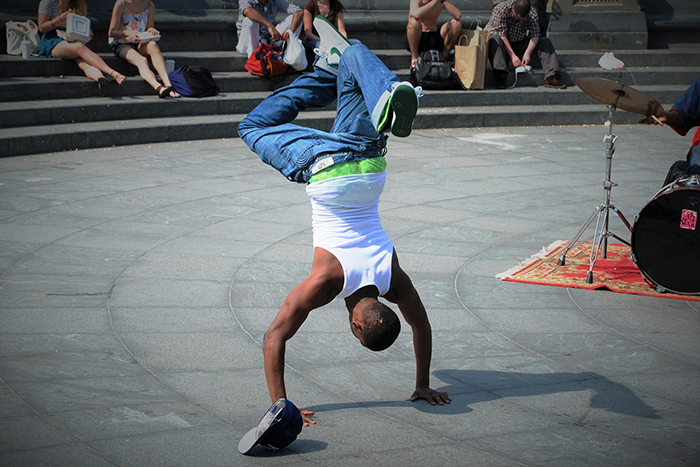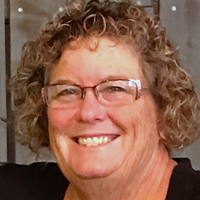
Editor's note: This is the first of a two-part series on Cru® Inner City's Director of Expansion and his plans for increasing the ministry's urban presence in the United States and beyond. In the first installment we are introduced to Bryant Lee and the life experiences that fuel his passion for young people trapped in inner-city neighborhoods. In Part 2, we will explore his vision for widening the influence of Inner City through the expansion program.
 Bryant Lee grabbed the phone as it rang nearby. It was his sister, her tone urgent.
Bryant Lee grabbed the phone as it rang nearby. It was his sister, her tone urgent.
"Floyd's been shot, and it's pretty bad," she blurted.
Bryant and Floyd had been inseparable since the second grade.
"Most people thought we were cousins because we spent so much time together," Bryant said.
Floyd played the saxophone and loved boxing. He came from an intact family, and the two of them often plotted out their futures.
"Man, one day we're gonna be two old men sitting on the porch with our sons bringing us our grandsons," Bryant, director of expansion for Cru Inner City, remembered Floyd often saying.
The pair remained close even after Bryant enrolled in the Army. The two would catch up when Bryant returned home on leave. They reminisced about their common bond of growing up in their Walnut Park neighborhood where the hip-hop culture was establishing itself after migrating from its New York birthplace. The North St. Louis City streets were wild — rife with drugs and violent gangsters — and the buddies weren't immune from the carnage. They often talked about friends who fell prey, dying in the midst of street wars.
| ‘These were places that we grew up in the neighborhood, but he wanted to keep me away from the bad elements that we had known our whole life.’ | "Drug selling was rampant, drugs were rampant. You needed street credibility, and here was a guy who got swept up into all of that," Bryant said of his life-long pal. "I started hearing stories of how he had become kind of a boss in the neighborhood with the drug gangs, how he and the guys were getting into it, competing for turf." |
During Bryant's visits to his old neighborhood, Floyd refused to bring his soldier friend to places where he set up business. His motive was not guilt over his lifestyle, but a desire to distance Bryant from the urban warfare he now embraced as his own.
"There's no shame in the hood, never, never, never," Bryant said. "What's more uncommon is you're in that community and you're not living the lifestyle. It's uncommon for the guy who's going to college, doing all the right things, trying to get married, raise a family. That's the uncommon thing. The common thing is, ‘Hey, man, you got to go out, hurry, get it, grind it out, do whatever's necessary.'"
Bryant was the uncommon one, who distanced himself from the gang and drug scene by enlisting in the military. By the time he received the call that Floyd had been shot, Bryant had just married, had his eyes set on advancing his career and starting a family.
"When I would come home, after joining the military, we would get together and hang out, but he was always protective of me, not letting me hang out with him in certain places, go certain places with him. These were places that we grew up in the neighborhood, but he wanted to keep me away from the bad elements that we had known our whole life."
Those elements ultimately proved fatal for Floyd.
"He fought (the bullet wounds) but he didn't survive," Bryant said. "He had been shot on the very corner where we played stickball, basketball, flag football in the streets, directly across the street from the building where we did Boy Scouts. He was shot in front of the building where at one point we lived over the corner convenience store."
More than 30 years later, Bryant, founding and lead pastor of Higher Expectations Community Church in Humble, Texas, still thinks about what could have been if Floyd chose a different path. How now, as a grandfather, he and Floyd would be sharing family stories on the porch.
 "He had every opportunity," Bryant said. "His parents, they were good, hardworking people who had migrated from the South to the North, had steady jobs that provided a good Christian home but the urban, inner-city streets of St. Louis — the calling to that — was greater than the calling that his parents would have had for his life."
"He had every opportunity," Bryant said. "His parents, they were good, hardworking people who had migrated from the South to the North, had steady jobs that provided a good Christian home but the urban, inner-city streets of St. Louis — the calling to that — was greater than the calling that his parents would have had for his life."
Even today, Bryant is unsure how they ended up in markedly divergent paths.
"He got exposed to drug culture and gang culture at a much deeper level," the now-pastor said. "That could be the only difference that I see. He actually had a much stronger family background, parental background, Christian background than I had. I think the difference was that the lure of the street lights captivated him more than the allure of normality."
Bryant's life experiences shape his belief that the legacy of violence and drugs in America's inner cities is linked to the universal human pursuit of purpose.
"All of us in that era, we were looking for identity whether it was in Islam, whether it was in Black nationalism, whether it was in drugs on the streets, we were all looking to solidify our identity as young men," he said. "In the inner city, the call for survival, the call for status, the call for what I call neighborhood stardom is great, is great."
That pursuit though, when powered by self-determination, rarely leads to lasting change.
"I've seen what it does to a community when people in the inner city lack identity and hope. I've seen how that can fester when people feel like they have no options, and they feel like they're boxed in," Bryant said. "There is a common thread to what we're seeing in the urban inner city and that is the lack of biblical manhood and a biblical worldview."
That's why in the fall of 2020, after mentoring young men for decades through his work in the Army and church, Bryant formally joined the Cru Inner City team, having partnered with the ministry since meeting Glen Kleinknecht, then-director of expansion, more than a dozen years ago.
"Losing so many friends so young impacted me deeply and has become the driving factor of my ministry to reach the next generation of young leaders in the inner city."
Much of that formational desire was instilled by his 23-year Army career, where he served in communications and the infantry before finishing his service with medical recruiting.
| ‘Losing so many friends so young impacted me deeply and has become the driving factor of my ministry to reach the next generation of young leaders in the inner city.’ | "My military service played a pivotal role in teaching me discipline, order, structure, leadership, selfless service, character, integrity," Bryant said. "Those things were really formed and shaped in me during my time in the military. Often, when there's no structure, where there's no leadership, young men, young women in urban environments go astray. |
"It was an amazing season of my life because it exposed me to very high-level leadership, as well as to high-level practitioners. So, I'm able, now, to bring some of that knowledge, some of that training, some of those pillars along with me to Cru Inner City."
His pastoral work at Higher Expectations has augmented that training. Bryant launched the church, northeast of Houston, in 2006.
"I've mentored young men from the urban inner-city core because that's where I'm from," he said. "I know that there is hope, but I also know that there's talented and gifted people, (who) if given the opportunity and chance, would wow the world.
"It's kind of one of those deals when you get to see your whole life come together and fulfill the purpose for which you were created. That's a lot of how I feel every day."
Photo of break dancer by serendypita (Paolo Berrett)/Pixabay.

Previous Posts:
 Lori Arnold serves as senior writer for Cru's inner-city ministry.
Lori Arnold serves as senior writer for Cru's inner-city ministry.
The expansion of Cru Inner City's ministry reach means urban residents will have much-needed access to meet their physical and spiritual needs. Share Bryant's story on Facebook or other social media platforms by using this link:
©1994-2024 Cru. All Rights Reserved.